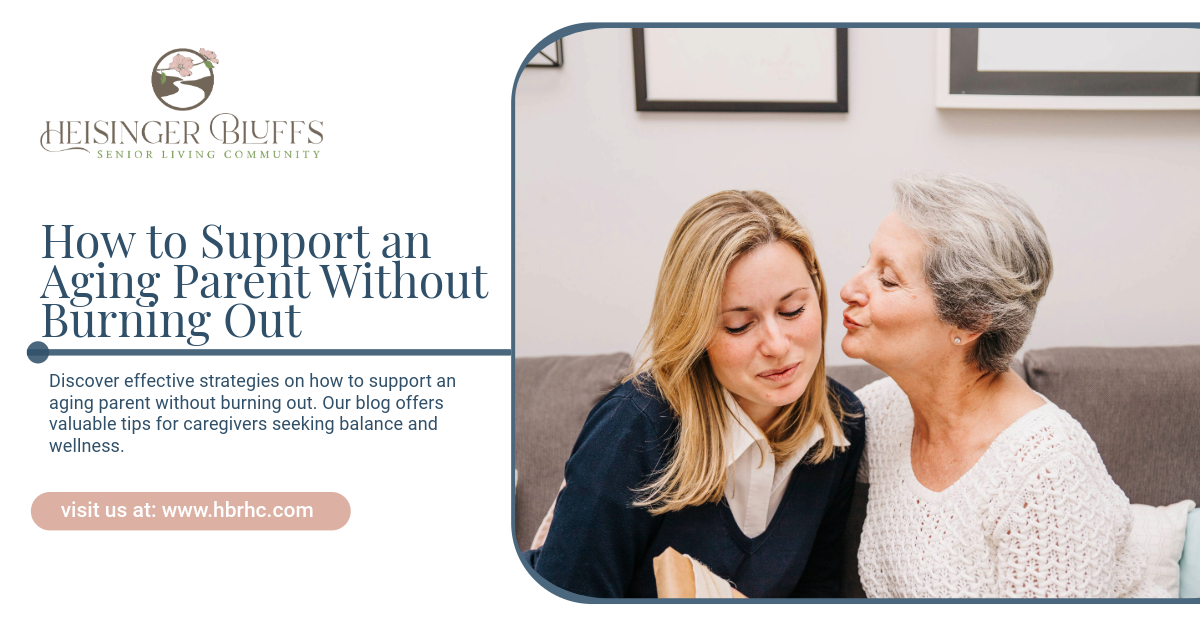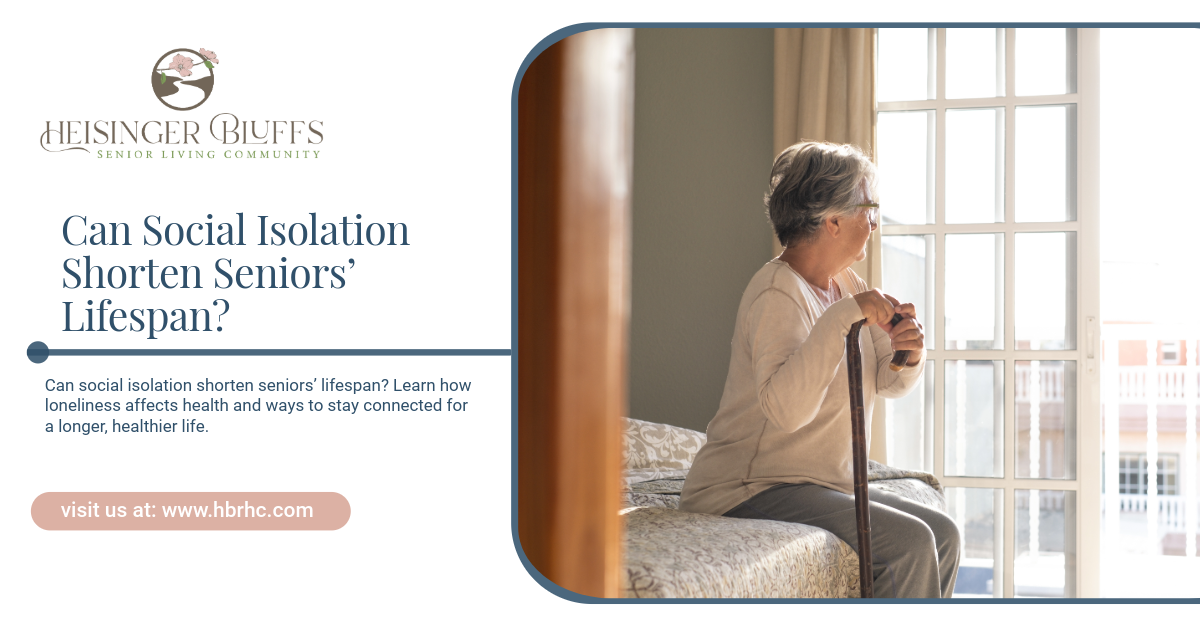How to Support an Aging Parent Without Burning Out

Key Highlights
- Caregiver burnout is a common challenge faced while supporting aging parents, affecting mental and physical health.
- Recognizing signs of burnout, such as exhaustion and resentment, is essential for effective caregiving.
- Balancing personal life with caregiving responsibilities is crucial to maintain mental health and strengthen family relationships.
- Using resources like support groups, geriatric care managers, and home care services can ease caregiving demands.
- Establishing routines, creating networks, and learning communication techniques improve interactions with elderly parents.
- Considering professional help, such as assisted living or in-home care, may be necessary when caregiving becomes overwhelming.
Taking care of your aging parents can make you feel happy, but it can also be very tiring. You might feel worn out in your body and mind. This can lead to caregiver burnout, and that is not good for your mental health. When you see your parents getting older or when they don’t want help, things can get harder.
This blog will share some helpful ways to deal with caregiving. There are tips to help you care for your aging parents and look after your own health, too. Our goal is to help you find balance, notice what challenges you, and stop burnout before it begins. With the right steps, you can care for your family and also take care of yourself.
Understanding the Challenges of Supporting an Aging Parent
Taking care of aging parents can be hard for many people. You often face strong emotions, tough choices, and changes in how your family works together. When your elderly parents have health problems, dementia, or when their bodies get weaker, they need more of your time. This can be stressful for caregivers.
Sometimes, your parents may want to stay independent. They may not want your help, and this can make things tense or upsetting. Trying to meet their needs while also looking after your own is a tough job. When you learn about these issues, you can use care and kindness while keeping your mental health strong.
Recognizing Signs of Caregiver Burnout
Caregiver burnout can show up without you seeing it at first, but it can make it hard for you to give good care to your aging parents. The first sign is often when you feel tired all the time. This tiredness can make you feel upset, annoyed, or even angry. You may notice that you are worn out from trying to keep up with all the things you have to do, and you might get headaches or have trouble sleeping.
Stress is another common sign. You may worry a lot about your caregiving tasks. It is normal to feel anxious about how your parents are doing or to get overwhelmed by all that you have to handle. These worries could mean you are starting to feel burnout.
Feeling resentment also can be a big clue to burnout. If you feel like you are the only one doing the caregiving or that nobody helps, it can make you feel angry or even guilty. This feeling tells you that your mental health needs care too. It is important to notice these signs early. If you do, you can reach out for support from support groups, family, or a mental health professional. These steps help stop burnout before it gets worse.
Balancing Personal Life and Caregiving Responsibilities
Keeping a balance between caregiving and your own life can be tough. It helps to put your mental health first. Make time for self-care. Doing things you like, going to social events, or just taking a break can help with the stress that comes from caregiving.
Let family members help you out when you can. If more people step in, then caregiving is something you all can do together. This teamwork makes it less stressful for you and gives you more time to look after your well-being while caring for your aging parents.
It is important to know your limits. Say what you can and cannot do. Being open about this helps keep things clear for everyone. It also helps your family trust you and keeps their expectations real. When you find this balance, you do better. And your aging parents also get better care.
Preparing to Support Your Aging Parent
Having a clear plan is important when you start to care for aging parents. To begin, talk with them about what they want, what worries them, and what they need right now. Try to ask open-ended questions when you have these talks. This helps them speak up and feel part of the choices.
As you get ready, be sure to think about your own skills and limits. Think about whether you, or any other family members, might need extra help from people who are trained in aging and caregiving. Good planning makes sure your parents can get what they need, and it helps keep your own mind at ease, too.
Essential Resources and Tools Needed
Using resources can make caregiving a lot easier. A geriatric care manager can help you understand medical, money, and personal care choices. These experts give solid advice when you plan long-term care.
Support groups can lift your spirits and let you share with others. Meeting with caregivers who face the same things can help your mental health. They also share useful tips on how to handle stress.
Home care services are there if you need help at home. Assistants can support with daily chores or give medicine. This way, your parents get the right personal care, and you can have time to do other things.
Assessing Your Parent's Needs and Abilities
Knowing your parent’s special needs is the most important part of caregiving. Watching out for signs of health problems or dementia helps you take action early. This care will help keep them well.
Think about how they do daily things by themselves. Do they find it hard to bathe, dress, or move around? Spotting these needs early helps you make a good support plan before things get worse.
Talk openly with them about how they feel as they get older or their health changes. When you listen to what they are afraid of, you build trust. This helps you and them work together for better personal care solutions.
Step-by-Step Guide to Effective Parental Support
Looking after aging parents can be tough, but having a plan helps a lot. This guide gives you simple tips you can use every day. It talks about how to set up routines, build support, and talk well with others.
If you plan your days the right way, you will find that deals with daily problems is easier. You can also be there for your parents in a better way and take care of your own mental health at the same time. Use these steps to give good care to your aging parents and also care for yourself.
Step 1: Establish a Daily Routine
Routines help aging parents feel less lonely and give their days more structure. You can start by making a plan that fits what they need. Try to set times for meals, when to take medicine, and their favorite hobbies. That helps each day feel useful and full.
When plans stay the same every day, it helps people think more clearly. The same daily walk or trip to social events can lower worry. Over time, this can be good for their physical health.
Routines are good for more than your aging parents. They help you keep up with caregiving. A set plan can stop last-minute stress. This makes your job feel steady and a lot better.
Step 2: Create a Support Network
A caregiving network can make your job easier and help you feel more relaxed.
- Family members can take care of jobs like shopping for groceries or cooking meals.
- Professional caregivers bring skills and give help where special care is needed.
- Support groups let you meet others who are going through the same things, which can help you feel stronger inside.
Your network is not only made up of helpers. It is a key support system that makes sure your parent gets steady care while you also keep things balanced in your own day-to-day life.
Step 3: Implement Effective Communication Techniques
Good communication is very important when you care for elderly parents. Try to talk with them in a patient way and show that you understand how they feel. If you start to get frustrated, take a moment to pause before you start again.
It is also important to listen closely to what your parent says. Let them talk first, and then show you understand by saying back what you heard. This helps build trust between you and them. It also makes it easier to help if your elderly parents do not want help at first.
Make sure you repeat or sum up the main things you talk about. This helps you both stay clear, especially if your elderly parents have trouble with memory or thinking. Good, clear communication makes caregiving much simpler for both of you.
Step 4: Manage Medical and Financial Affairs
Keeping up with both medical and financial tasks can feel like a lot to handle. Still, having a plan makes the work much easier.
| Category | Details |
|---|---|
| Medical Affairs | Set up medical appointments, manage medicine, and keep health records up to date. |
| Financial Management | Make budgets to handle costs such as medical bills and home care. |
| Legal Documents | Check that papers like wills, power-of-attorney, and health care forms are right and current. |
Putting all this information in order helps lower stress. It also helps you see things clearly and makes sure your parent’s health and money are taken care of.
When to Consider Professional Help
If you feel that caregiving is becoming too much or that your parent’s needs are more than you can handle, it may be time to get professional help. Senior care services help with many health issues. These services can keep your loved one safe and make them feel comfortable.
You can choose in-home help or an assisted living facility. Both of these can help meet your loved one's needs. They can also help make their life better. Knowing when you need help from outside is a good and kind thing to do.
Identifying the Need for Professional Care
Knowing when it is time to move from helping your loved one by yourself to using professional senior care comes from knowing the limits of what you can do. If you see things like ongoing caregiver burnout or notice that your parents' health problems are getting worse, it is a sign that you need professional support.
Watch for changes in their mood or daily actions, tough health problems, or safety risks like when they fall often. These things mean that it is time for expert help so they can get better care.
Know that asking for professional support in senior care does not mean you have failed. You are taking care of your mental health, and making sure your parent gets what they need.
Options for Senior Living and In-Home Care
Senior living communities help aging people with planned support. Assisted living lets people join social events. Staff keeps an eye on physical health and supports independence. People live in a safe place.
In-home care works well if parents want to stay in their own house. These home care services can help with things like making meals and spending time with someone. It all fits each person’s needs, making sure there is comfort and safety.
To pick the best choice, you need to think about your parent’s biggest needs and health problems. Both options are there to give good support. This way, families can handle caregiving in a better way.
Conclusion
Supporting an aging parent can bring a lot of good feelings, but it can also be hard. It is important to know the signs of caregiver burnout. By setting up a clear plan for help, you can make things better for your parent and for yourself, too. Try to make a daily routine. Talk openly and be sure everyone knows what is going on. Learn when it is time to get help from a trained expert. As you go through caregiving, remember to care for yourself as well. This part is very important and will help you stay strong.
If you feel like it is too much or you do not know what to do next, you can get help. Heisinger Bluffs has tools and support for families who are dealing with the stress of aging and burnout. Taking a simple, small step for more balance can really help. It will give you and your loved one a better way forward. Contact us today!
Frequently Asked Questions
What are the early signs that my aging parent needs more support at home?
Early signs may include difficulty with daily tasks (like bathing, cooking, or taking medication), forgetfulness, changes in mood or personality, frequent falls, or isolation. If your parent struggles with basic self-care or seems confused or withdrawn, it may be time to consider additional help such as in-home care or professional assessment.
How can I talk to my parent about accepting help without upsetting them?
Start by expressing concern rather than giving instructions. Use “I” statements like, “I worry about your safety,” rather than “You can’t take care of yourself.” Involve them in decisions, ask open-ended questions, and listen without judgment. This makes them feel respected and more likely to accept assistance.
When should I consider transitioning from home care to assisted living?
If your parent’s medical needs exceed what home caregivers can manage, or if caregiving is causing severe emotional or physical burnout for you, assisted living may be the best option. Key indicators include frequent medical emergencies, worsening memory issues, mobility limitations, or increased safety risks at home.
Sources:
- https://www.healthline.com/health/health-caregiver-burnout
- https://www.nami.org/about-mental-illness/treatments/types-of-mental-health-professionals/
- https://www.aarp.org/caregiving/basics/info-2020/geriatric-care-manager.html
- https://pmc.ncbi.nlm.nih.gov/articles/PMC8840439/
- https://pmc.ncbi.nlm.nih.gov/articles/PMC9859075/











